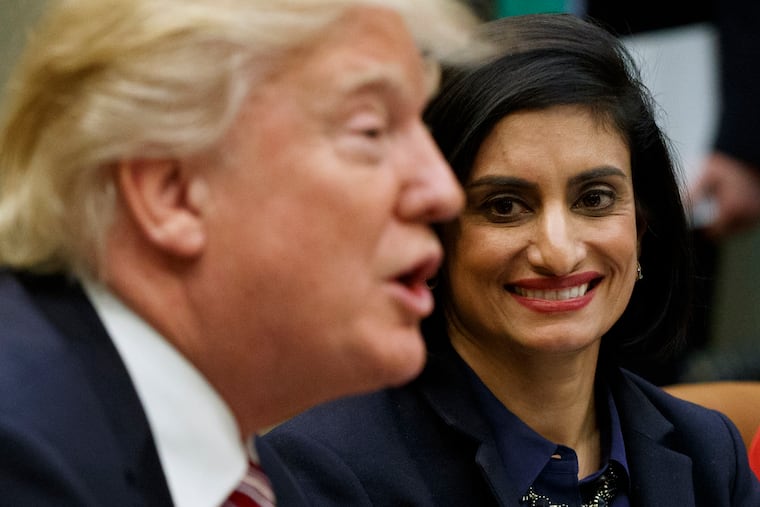Medicaid block grant proposals spell trouble for patients and hospitals | Opinion
The White House's new “Healthy Adult Opportunity” plan is a thinly disguised effort to weaken Medicaid.

Medicaid is a longstanding partnership between states and the federal government to provide care to the poorest and sickest among us. A pair of proposals from Washington threaten to upset this joint commitment and fray the nation’s perilously thin safety net for vulnerable patients.
Together, these proposals stand to trigger an erosion of the impressive gains we’ve made for patients across our country and region this past decade.
Unlike Medicare, a program that primarily supports older Americans, Medicaid covers low-income Americans of all ages. In January, the White House unveiled a plan called “Healthy Adult Opportunity” that’s a thinly disguised effort to redraw Medicaid financing as a block grant plan. That would allow states to request caps on funding for adults covered by the Affordable Care Act’s Medicaid expansion. The plan would also potentially curtail health benefits and drugs available to some patients.
This effort comes on the heels of the proposed Medicaid Fiscal Accountability Rule, which seeks to limit the ways states finance their share of Medicaid, which is crucial to the program’s survival. If adopted, the rule could reduce Medicaid program funding by as much as $49 billion annually.
These two plans represent a return to bad policy that would chip away at medical care for the nation’s most vulnerable citizens and further stress the precarious operations of many hospitals. Depending on how quickly the administration moves, and engagement from individual states, these proposals could be implemented later this year.
In Pennsylvania, Governor Tom Wolf has rejected the block grant offer. But let’s consider what the impact would be under a governor who supports this plan. Medicaid covers 33 percent of all Pennsylvania births, and 13 percent of senior citizens get health care through the program. It provides support to nearly half of our state’s residents living with disabilities, including the care that helps them live independently.
Research shows that Medicaid beneficiaries are more likely than those without insurance to access lifesaving preventive care like mammograms and vaccinations, and to have a place to obtain routine primary care. A raft of data demonstrates that kids who are eligible for Medicaid get a better start in life than those who go without health insurance — they miss fewer days of school due to illnesses and injury, do better in school, and are more likely to graduate from high school and college and earn more as adults.
Following the expansion of Pennsylvania Medicaid made possible by the Affordable Care Act, we’ve seen our state’s uninsured rate drop to historic lows. We know when patients have access to insurance, it both strengthens our economy and improves health outcomes.
Medicaid is also a crucial support for our state’s hospitals, especially those which care primarily for poor and underserved populations. Medicaid reimbursement for care provided to these patients is notoriously low, and more cuts to the program will strain those hospitals beyond repair.
Consider the current state of hospital finances across the Commonwealth. Many facilities that care primarily for publicly insured patients are struggling. Last year, the Pennsylvania Health Care Cost Containment Council (PHC4) reported that 66 hospitals — 39 percent of the state’s general acute care hospitals — posted negative aggregate operating margins in 2018, up from 30 percent two years prior.
This trend foretells the failure of hospitals. We have watched it happen across our region for 20 years. The Episcopal Hospital, Northeastern, Albert Einstein Southern Division, Graduate Hospital, Metropolitan Hospital, and most recently, Hahnemann University Hospital, have all shut down acute care operations in Philadelphia. Rural hospitals are in trouble, too, with fixed overhead expenses that reimbursement for a limited patient population can’t cover. In a state without a public hospital system, the remaining hospitals commit to filling the gap in spite of reimbursement shortfalls.
Philadelphia is fortunate to have a robust health care community fueled by individuals who are passionate and creative about providing care in settings from trauma centers to church basement clinics, from doctors’ offices to mobile health screening vans. Here and elsewhere, our collective ability to serve patients who live in poverty is directly linked to a healthy Medicaid program. Weakening that program would have dire consequences.
Kevin B. Mahoney is CEO of the University of Pennsylvania Health System.